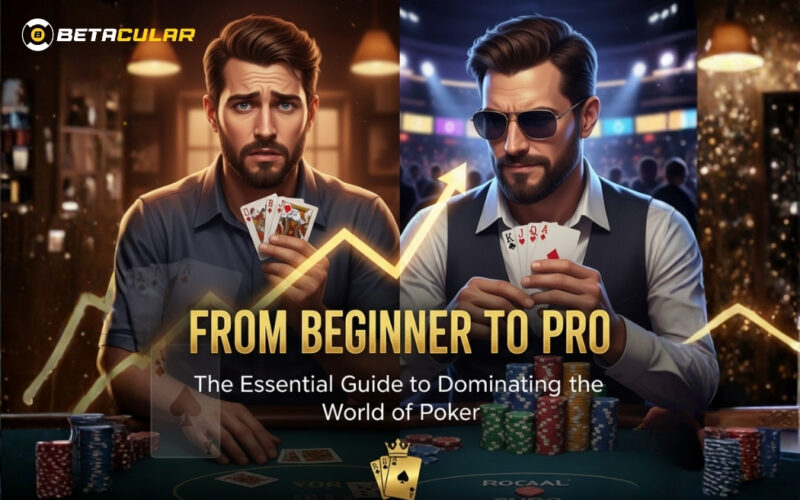Beyond Luck: Poker as the Ultimate Mind Sport
Poker is far more than a simple card game; it is a complex battlefield of mathematics, psychology, and risk management. It’s a game of skill that has captivated players globally, offering a unique fusion of calculation and courage.
Whether you’re new to Texas Hold’em or exploring the complexities of Omaha, understanding the fundamental strategies and the underlying culture is the key to turning a casual hobby into a profitable pursuit. This deep dive explores why poker is often called the “sport of kings” and how you can develop the mindset of a professional.
Essential Strategy: The Core Concepts Pros Use
The era of intuitive, “feel-based” poker is over. Modern poker strategy, especially in the online poker India landscape, is dominated by mathematical concepts.
1. Master the Math: Expected Value (EV)
The single most important concept in poker is Expected Value (EV). This represents the average outcome of a decision if you were to repeat it an infinite number of times.
- Positive EV (+EV): A move that makes you money in the long run.
- Negative EV (-EV): A move that costs you money in the long run.
Your goal is always to pursue the highest +EV line, even if it occasionally results in a short-term loss. This mindset separates true professionals from recreational players.
2. Game Theory Optimal (GTO) Play
GTO poker is a strategy that makes your play theoretically unexploitable by your opponent. It involves balancing your ranges—playing both strong and weak hands in the same way (e.g., bluffing and value betting with the same frequency) so that your opponent can never be sure what you hold.
- Think in Ranges: Professionals never put an opponent on a single hand; they assess their entire hand range (all the possible hands they could hold) based on their action and position.
- Position is Power: Your seat relative to the dealer button is critical. Playing hands aggressively from late position (Cutoff, Button) gives you more information, allowing you to play a wider variety of hands profitably.
3. The Aggression Principle
Aggression wins at the poker table. Always prefer raising and betting over checking and calling. Aggression gives you two ways to win the pot:
- Showdown: You have the best hand.
- Fold Equity: Your opponent folds their hand because they fear your aggression.
The Culture and Psychology of High-Stakes Poker
Beyond the numbers, poker is a fierce psychological game. Players must master their own mind before attempting to master their opponents’.
Managing the Mental Game (Tilt)
The biggest lek for most poker players is “tilt”—the emotional state of frustration or anger that leads to poor, illogical decisions. A pro’s resilience is defined by their ability to maintain emotional equilibrium after a “bad beat” (a statistically unlikely loss).
- Loss Aversion: Beginners often play overly cautiously, fearing loss more than valuing the potential win.
- Mental Stamina: High-stakes games demand the mental endurance of a marathon runner. Focus, discipline, and a strict bankroll management strategy are your psychological armor.
The Indian Poker Scene
In India, poker is increasingly recognized as a game of skill, separating it from games of chance. Despite evolving legal landscapes, the community is thriving, fostered by local tournaments, online platforms, and the inherent competitive spirit that resonates with the history of strategic Indian card games. Pioneers like Nikita Luther (first Indian woman WSOP bracelet winner) continue to inspire a new generation of players.
Ready to Test Your Strategy?
Poker offers a thrilling path to apply complex analysis for real money. Every decision—from your starting hands to managing pot odds—is a chance to prove your skill.
If you’re serious about turning theory into winning strategy, you need a secure, reliable platform that offers various formats, seamless action, and transparent operations.
Join a community of strategic players and put your GTO knowledge to the ultimate test.

